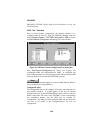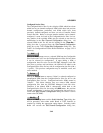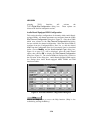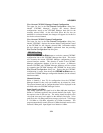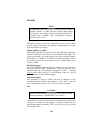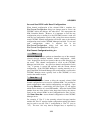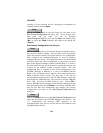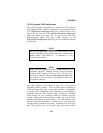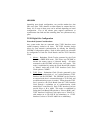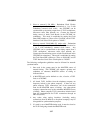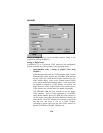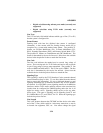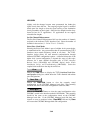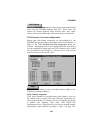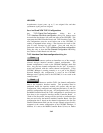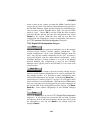
LBI-39224
3-56
depending upon board configuration, can provide modem-less data
links over spare T1/E1 channels to either internal or external devices.
Some, all, or none of these ports can be utilized depending on board
configuration. Five of the subrate ports support synchronous or
asynchronous data links and the remaining three are synchronous-only
ports.
T1/E1 Digital Site Configuration
Networked Systems Considerations
Any system nodes that are connected using T1/E1 Interfaces must
remain frequency locked at all times. The T1/E1 Interface design
allows for total network synchronization by offering the following
CEC/IMC Configuration options. Each of these options are selectable
by configuration of both the Clock Boards and the T1/E1 Interface
Cards.
1. Master - Redundant Clock Circuits generated by the Clock
Board in a FREE RUN mode. This allows any CEC/IMC to
become the master source of Network timing. All nodes
connected to this CEC/IMC will be in the slave mode. This
mode is established by setting the Clock Board DIP switches
to "Master" mode and all the T1/E1 Interface Cards' Slave
Clock option to "NONE."
2. T1/E1 Slave - Redundant Clock Circuits generated by the
Clock Board synchronized to 1 (or 2 with redundancy) T1/E1
Interface into the CEC/IMC. The CEC/IMC can be slaved to
an external node that is connected through a T1/E1 link, and
no additional timing source is needed. Timing from the T1/E1
line is passed to the Clock Board from the T1/E1 Interface
Cards through a redundant set of synchronization clocks
named Slave A and Slave B. Each T1/E1 Interface Card can
provide Slave A, B or A&B. This mode is established by
setting the Clock Board DIP switches to "Slave to 8kHz" and 1
T1/E1 Interface Card Slave Clock option set to "SLAVE A,"
with another set to "SLAVE B" for redundancy, or 1 T1/E1
Interface Card set to "SLAVE A&B" for no redundancy.



